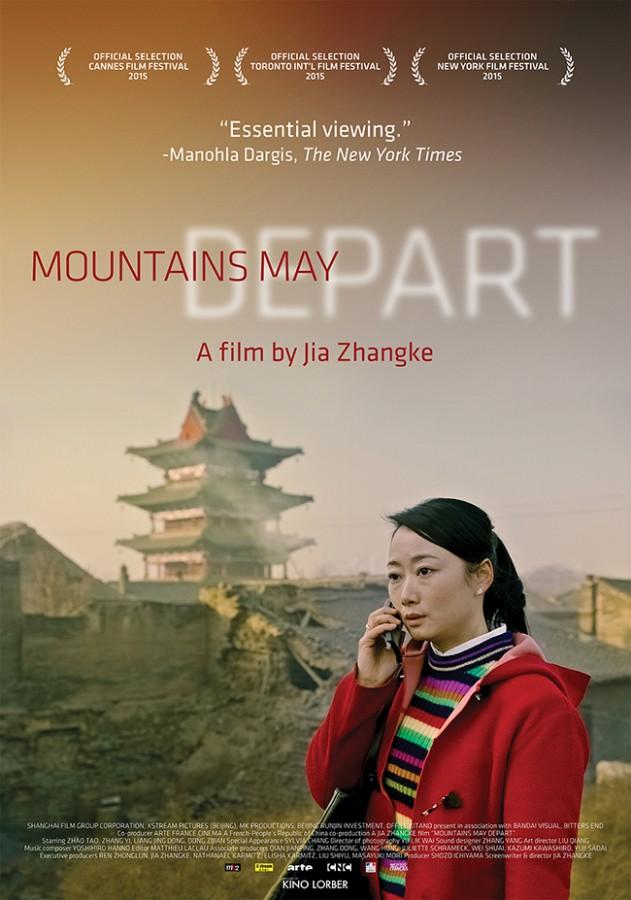‘Mountains May Depart’ For Naught
February 12, 2016
Jia Zhangke’s “Mountains May Depart” is almost unsettlingly relevant to today’s world, given the film’s focus on China’s rapid economic expansion. This year began with the country’s market taking a nosedive, which coincided with the threat of impending recession. All that boom, and what if it is all for naught? It is a worthwhile contemplation and one central to the film, which makes its case from a humanistic standpoint.
The film is built around three separate and seemingly disparate years: 1999, 2014 and 2025. It follows the life of Tao (Tao Zhao), who begins the film as the subject of two greatly interested suitors. One of them is Zhang Jinsheng (Yi Zhang), a boastful nouveau riche type whose ignorance is almost forgivable due to his fumbling nature. His competitor is Liangzi (Jing Dong Lian), a coal miner with an almost painful kindness.
The three make for an awkward love triangle, which the film dedicates a great deal of time to, though it works based on pure chemistry and subtle acting. Tension accumulates and boils into one of the film’s best scenes, where Liangzi faces his defeat. Tao is in clear view avoiding eye contact, while Liangzi is placed off screen. His once kindly voice jabs into the frame with venom.
The staging is remarkable, and the film continues to improve, as Zhangke uses progression in the narrative for emotional accumulation. In the first time jump, we see the horrid growing pains of the film: the growing industrialism and handholding from 1999 morph into the yellow-tinged air of 2014. Liangzi is sick from work and, despite having a child, Zhang and Tao have separated. This middle portion is where the film shines, operating as a delicate retrospective for past regrets.
At one point, Liangzi and Tao reconnect. Previous mistakes are thinly veiled behind conversation, to the point where each time Liangzi coughs it feels as though tears may stream. Worse yet is when Tao sees her small boy, who was cruelly named Dollar. She mistakenly deems Zhang’s wealth as superior to her own care and attention, choosing to take one last train ride to give the boy back to his father. Dollar asks why they take the slower train, which Tao responds to by saying that she wants to spend that much more time with him. “Mountains” tries to contemplate and ultimately stop time.
Unfortunately, within the next time jump, Zhangke chooses to divert from Tao, causing the film to utterly collapse. It becomes apparent that she was the sole source behind the film’s power, which is understandable given how beautifully Zhao portrayed youthful rigor in the face of agedness.
An older Dollar (Zijian Dong) takes center stage, living in Australia in 2025. His relationship with Zhang is sad and awful, but the English dialogue and Dong’s acting is worse. Every bit of this final act is forced, from grasping at father-son drama to the strangely Oedipal relationship Dollar has with his professor. The undeniable disappointment of the conclusion is almost as upsetting as the emotional breadth of the first two-thirds of the movie, to the point where it renders “Mountains May Depart” nearly unwatchable. Despite the initial triumph, it was all for naught.
Email Ethan Sapienza at [email protected].
















































































































































